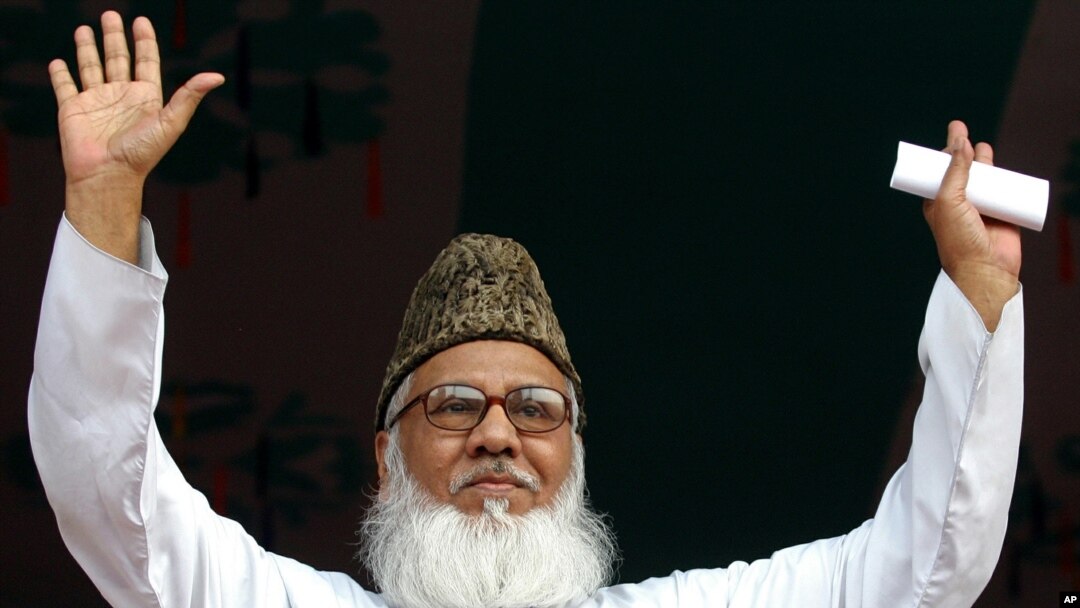Judges in Bangladesh have sentenced the head of the country's largest Islamist party to death for war crimes.
A three-member special tribunal in Dhaka handed down the long-awaited verdict on Wednesday to hang 71-year-old Motiur Rahman Nizami, a former Cabinet minister. In June, the court delayed the verdict after medical officials said Nizami was too ill to appear in court.
Nizami, who leads the radical Jamaat-e-Islami party, was charged with genocide, murder, torture, rape, and destruction of property for his role in the country's nine-month war for independence from Pakistan in 1971.
“Considering the gravity of the crimes, the tribunal punished him with the death sentence,” state prosecutor Mohammad Ali told reporters.
The sentence could provoke protests by supporters of Nizami’s Islamist party, who say the government has used the tribunal to weaken its political opponents.
Jamaat-e-Islami said in a statement that the people of Bangladesh were “surprised, stunned and deeply sad,” and called for a 24-hour general strike from Thursday and a 48-hour national stoppage from Sunday to protest against the verdict.
Police said Jamaat activists protested soon after the ruling and about 90 of them were detained in Nizami's home district.
“We are very unhappy with the judgment and the tribunal's observation,” defense lawyer Tajul Islam told reporters, adding that his client would appeal to the Supreme Court.
Bangladesh says local collaborators and Pakistani soldiers killed 3 million people, raped 200,000 women and displaced about 10 million to refugee camps in neighboring India. Jamaat-e-Islami opposed independence.
Bangladeshi Prime Minister Sheikh Hasina set up special tribunals that have sentenced at least 10 opposition leaders for war crimes since their creation in 2010.
Critics say the government has abused the process as a political tool to target the two biggest opposition parties, the Bangladesh Nationalist Party and Jamaat-e-Islami. This year, more than 100 people have been killed in protests over the tribunal's verdicts.
The New York-based Human Rights Watch group has said the court's procedures fall short of international standards.
Material for this report came from Reuters.



